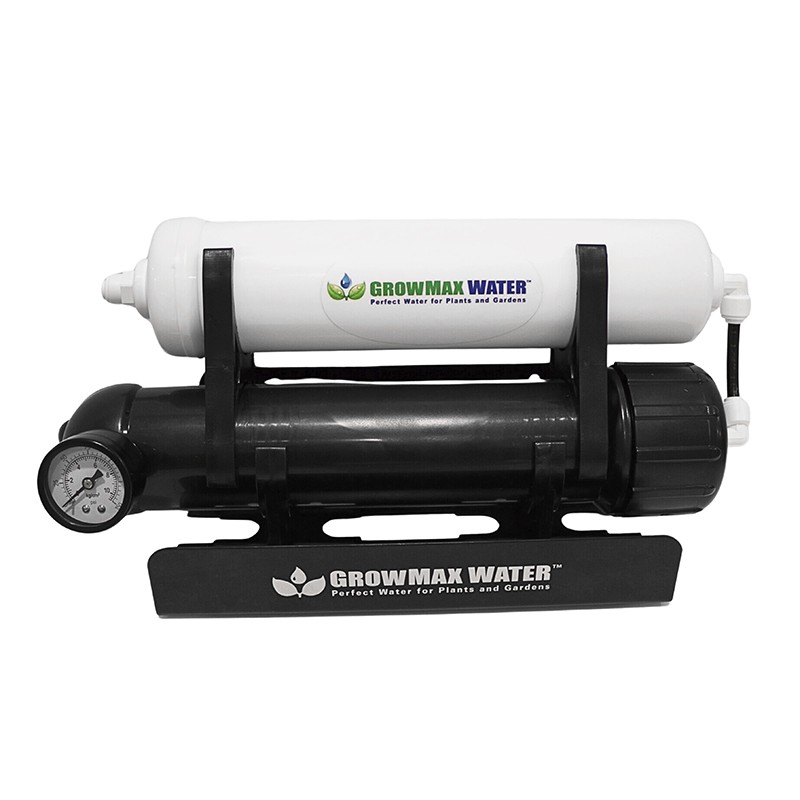



The MiniMax 75 is a reverse osmosis system designed for hydroponics and gardening, ideal for those seeking pure, contaminant-free water for their crops. This compact system produces up to 250 L/day (maximum 10 L/h), providing a constant and high-quality supply.

Delivery next day in all stock products

Gifts in all your orders

C/Moianes 24 08014 Barcelona Spain
Benefits of the MiniMax 75:
Eliminates or reduces: Salts, heavy metals, chloramines, nitrates, nitrites, sediments, herbicides, pesticides, and volatile organic compounds like benzene and oils. Additionally, it removes up to 99% of chlorine, making it ideal for perfect irrigation water.
Includes:
The MiniMax 75 is the ideal solution for those needing a reliable, compact, and efficient reverse osmosis system for their crops.
Why should we avoid chlorine in our cultivation water?
Impact on soil microbiota: Chlorine is a disinfectant that can eliminate beneficial bacteria and fungi in the soil. These microorganisms are essential for the breakdown of organic matter and nutrient availability for plants. Destroying them disrupts the nutrient cycle and compromises soil and plant health.
Damage to roots: Chlorine can directly damage roots, affecting their ability to absorb water and nutrients efficiently. Over time, this can lead to reduced plant growth and lower crop yields.
Interferes with nutrient absorption: Chlorine can interfere with the plant's ability to absorb certain nutrients, such as nitrogen and phosphorus, which are key elements for plant development and flowering. This can result in visible nutrient deficiencies like chlorosis or stunted growth.
pH adjustment in the soil: Constant use of chlorine-treated water can alter soil pH, making it more acidic or alkaline depending on local conditions. This can negatively impact nutrient availability and soil structure.

The MiniMax 75 is a reverse osmosis system designed for hydroponics and gardening, ideal for those seeking pure, contaminant-free water for their crops. This compact system produces up to 250 L/day (maximum 10 L/h), providing a constant and high-quality supply.